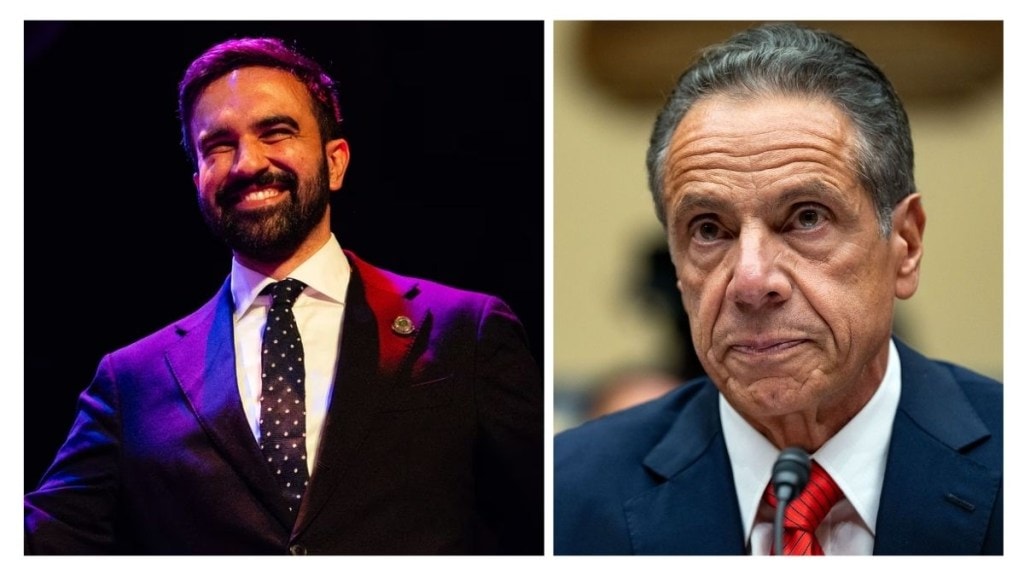New York City voters are casting ballots today in one of the most consequential Democratic mayoral primaries in recent memory. More than 384,000 people participated in early voting, more than double the turnout seen in 2021. With polls open from 6 a.m. to 9 p.m., election officials say they are well-prepared for the voting.
Who are the contenders for the election?
The race has coalesced around two front-runners offering dramatically different visions for New York’s future. Former Governor Andrew Cuomo, 67, is seeking a political comeback after resigning in 2021 amid a sexual harassment scandal. Positioning himself as a steady hand during uncertain times, Cuomo has leaned heavily on his years of government experience. At a campaign stop on Monday night, he dismissed concerns about his past, instead criticising his chief rival as unfit for the role. “This is not a job for a novice,” Cuomo declared. “This is not a job for a person who really never had a job before.”
Assemblyman Zohran Mamdani, a 33-year-old Indian-American democratic socialist from Queens, has steadily risen in the polls after launching a campaign focused on affordability, tenant protections, and expanded public transit. He has pitched himself as the voice of working-class New Yorkers and immigrants, contrasting his grassroots appeal with Cuomo’s establishment backing. Speaking to supporters early Tuesday morning, Mamdani said, “By listening instead of lecturing, by creating a politics of no translation, New Yorkers will join you in your fight for a new city.”
The Cuomo-Mamdani contest has become a proxy battle for the soul of the Democratic Party. Cuomo has received support from centrist and establishment Democrats, including former President Bill Clinton. Mamdani, by contrast, has been endorsed by leading progressives like Senator Bernie Sanders and Representative Alexandria Ocasio-Cortez.
The race has also been shaped by external events. The recent conflict in West Asia has heightened scrutiny of the candidates’ foreign policy positions. Cuomo has reaffirmed his unwavering support for Israel, while Mamdani, who has spoken out in favor of Palestinian rights, says he has received anti-Muslim threats during the campaign.Tensions over immigration also flared when federal agents briefly detained Comptroller Brad Lander last week outside an immigration court, sparking outrage from several candidates.
Nine additional candidates are also in the running, although most have struggled to break through in recent polls. They include New York City Comptroller Brad Lander, City Council Speaker Adrienne Adams, former Comptroller Scott Stringer, State Senators Jessica Ramos and Zellnor Myrie, former State Assemblyman Michael Blake, and investor Whitney Tilson. Each has emphasised different policy areas, ranging from climate resilience to police reform, but none has consistently polled in the double digits. Still, under the city’s ranked choice voting system, second- and third-choice preferences could prove decisive.
What is ranked choice voting?
This is the second time the city is using ranked choice voting in a mayoral primary. The system allows voters to rank up to five candidates by preference. If no candidate secures more than 50 percent of first-choice votes, the candidate with the fewest votes is eliminated, and those votes are redistributed according to the next rankings. The process repeats until one candidate has a majority. Advocates say the system gives voters more freedom and encourages broader coalition-building. Critics argue that it can be confusing and opaque, with slower result tabulations and a less straightforward count. The 2021 mayoral election – New York’s first under ranked choice- saw miscounts and delays that the Board of elections has vowed not to repeat.
When to expect results?
Preliminary first-choice vote totals may be released tonight, but a full picture of the race is unlikely to emerge until early July. Ranked choice tabulation will begin on July 1, after all mail-in ballots are received. The city expects to certify official results by July 15, though an unofficial winner could become clear before that date if early rounds indicate a decisive lead.
Why is the month of November important?
Whoever emerges from the Democratic primary is widely expected to win the general election in November. Incumbent Mayor Eric Adams, facing falling approval ratings and allegations of corruption, is running as an independent after opting out of the Democratic primary. Republican nominee Curtis Sliwa, a perennial candidate and longtime talk show host, faces steep odds in a city that remains overwhelmingly Democratic.

